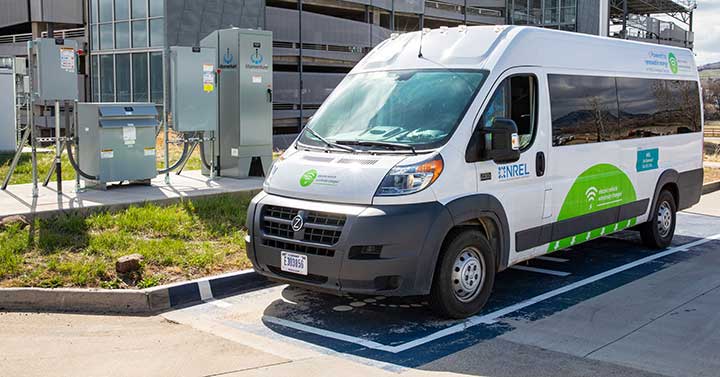Wireless Electric Vehicle Charging
NLR is investigating the requirements and feasibility of wireless electric vehicle (EV) charging.

High-power, in-road, dynamic wireless charging could increase the cost effectiveness and utility of EVs by increasing their range while enabling the use of smaller, cheaper batteries and reducing the charging demand at the fleet's central facility. This could reduce the cost of charging hardware and distribution system upgrades as well as the cost of operations and increase vehicle utilization and return on investment.
Research focuses on associated hardware and system planning as well as the potential for in-road wireless charging to reduce costs for drivers and limit demand for rare earth metals due to reduced battery capacity requirements.
System Design Variables
Researchers are looking at interrelated variables to design an optimized system:
- Roadway classes to be electrified and charging power requirements
- Roadway charging segment locations, lengths, and grid connection points
- System interoperability to serve a range of vehicle classes (i.e., light-, medium-, and heavy-duty)
- Optimized battery capacity as determined by increased on-road charging
- Feasibility of wireless charging for shared automated EVs
- Vehicle, infrastructure, and energy cost tradeoffs arising from battery size and charging type, location, and power.
Data and Tools
Researchers employ these tools and data repositories to study and develop wireless charging technologies and systems:
EVI-EnSite: Electric Vehicle Infrastructure – Energy Estimation and Site Optimization Tool
EVI-InMotion: Electric Vehicle Infrastructure – In Motion Tool
Fleet DNA: Commercial Fleet Vehicle Operating Data
T3CO: Transportation Technology Total Cost of Ownership
TSDC: Transportation Secure Data Center.
Contact
Share
Last Updated Dec. 6, 2025
